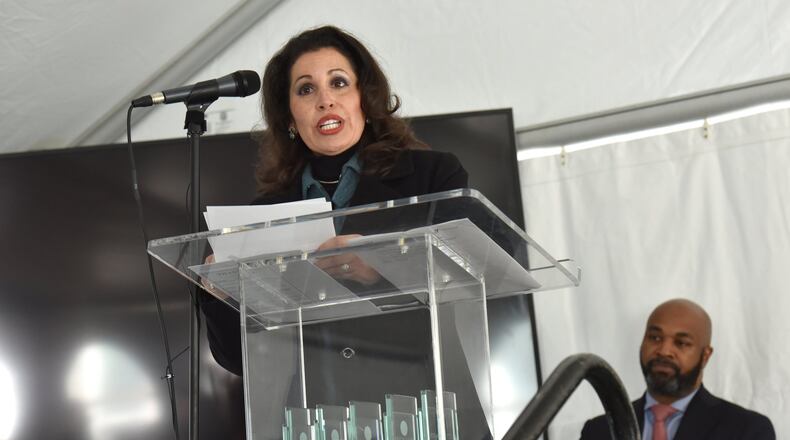As homeowners reel over double digit property tax increases, Invest Atlanta’s board gave developers $16 million in property tax abatements on Thursday.
“How are homeowners supposed to see the way we are treating their money?” asked board member Julian Bene. “Because make no mistake, when the developer gets his incentive, the homeowners pick up the tab.”
Tax abatements are among the most powerful tools for economic development in most local governments’ arsenals. Authorities also earn lucrative fees from developers for providing the tax breaks.
But critics argue those subsidies have grown out of control. In recent years, Invest Atlanta has required apartment developers to devote a portion of their projects to workforce housing - typically geared to people who earned between 60 percent and 80 percent of median income in exchange for tax breaks.
Thursday’s meeting provided a vivid illustration of the complexity surrounding the debate involving abatements, which relieve all or some of the increased tax burdens after improvements to a property raise its value.
Supporters of one of the projects, Interlock, a mixed-use project in Midtown west of the Downtown Connector with office space, retail and hotel, argued that the abatement helped pay for bike lanes and a crosswalk on Howell Mill Road.
Bene, often the lone voice of opposition on the Invest Atlanta board, pushed his colleagues to have higher standards in a letter to Atlanta Mayor Keisha Lance Bottoms and the rest of the board. Bottoms is the board's chairwoman.
Bene wrote that “it is time to reconsider the wisdom of multi-million-dollar tax concessions for projects with minimal public benefit.”
His letter seemed to have resonated with his colleagues. The board approved a $7.5 million tax abatement for Interlock with a 5-2 vote.
The board again voted 5-2 to approve a $5.6 million tax abatement for Banyan Street Capital to construct an apartment tower on Peachtree Center Avenue. The tower will include 70 “workforce” housing units.
The tower would be built on a parking garage and would generate an additional $20 million in new property taxes created out of the "air rights" atop the garage. Banyan had already received the city's commitment of $9 million for the project from the Eastside Tax Allocation District.
That incentive, along with the $5.6 million subsidy provided on Thursday, brought the city’s net gain from the tower down to less than $6 million.
“The issue of course is whether the project would go forward without it,” Bene said. “Banyan is a massive real estate private equity fund. Obviously it is their right to come to us and ask for abatements. But it is our duty at times to say, ‘No.’ ”
Banyan also received a $3 million reduction to subsidize renovations at landmark Peachtree Center development.
Alan Ferguson, Invest Atlanta’s senior vice president for community development, said the $60 million in renovations would add 3,000 workers to the center. The developer had also committed to offering discounted rents to nonprofits at the building, Ferguson said.
Bene said it made good business sense for Banyan to renovate the building.
“But it is perfectly ridiculous for them to come and ask us to contribute to that cost,” Bene said.
That vote was 4-3 in favor.
Keep Reading
The Latest
Featured




